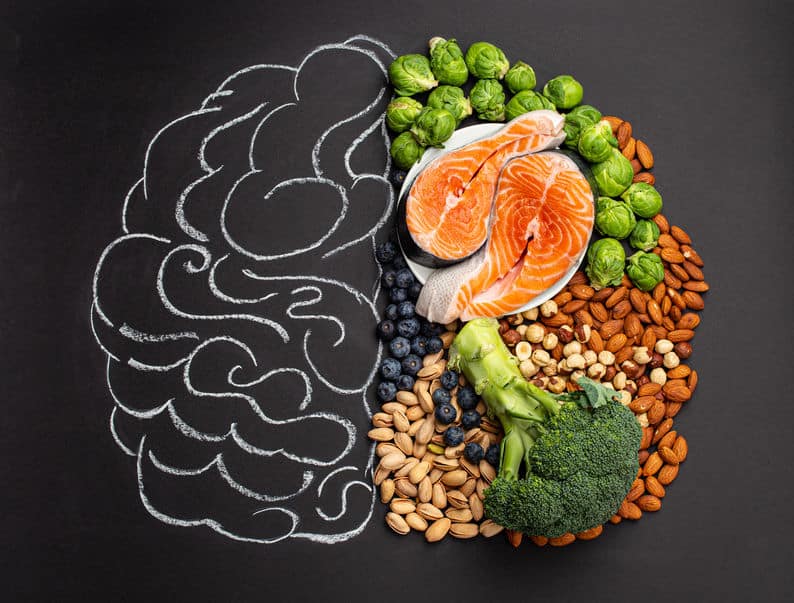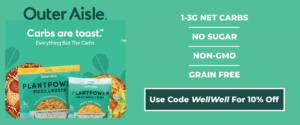By Jessica Scarpati
History’s brightest minds also had some of its more eccentric eating habits. Pythagoras despised beans and forbade his followers from eating them. Nikola Tesla drank one to two pints of milk daily. When he wasn’t fasting, Steve Jobs reportedly limited himself to a diet of just apples and carrots.
Knowing what we do now about the importance of a balanced diet, you probably shouldn’t try to eat your way into MENSA, at least based on those examples. But science does show that putting certain foods on your plate can be beneficial for your brain — offering protection from memory loss, Alzheimer’s disease and other forms of cognitive decline.
Seeking to create an eating regimen that maximizes brain health, researchers at Chicago’s Rush University Medical Center looked at mountains of data from past studies to determine which foods and nutrients had good and bad effects on brain function.
Their result was the MIND diet, short for the Mediterranean-DASH Diet Intervention for Neurodegenerative Delay diet. It consists of 10 “brain-healthy food groups” to consume regularly —leafy greens, other vegetables, nuts, berries, whole grains, beans, olive oil, fish, poultry and, yes, wine — and five unhealthy foods to avoid. Its naughty list features red meat, butter and stick margarine, cheese, pastries and sweets, and fried or fast food.
In a 2015 study, the diet’s developers found that strictly following the MIND diet lowered a person’s risk of developing Alzheimer’s by 53 percent. Those who followed the diet even moderately well still saw a benefit, about a 35-percent reduction in risk.
“I like to think of the MIND diet as a way to supercharge the nutritional content of what we eat. The goal is to emphasize foods that will not only lower our risk of heart attacks and stroke, but make our brains as resilient as possible to cognitive decline,” said Dr. Laurel J. Cherian, a vascular neurologist at Rush, who led a later study that found closely following the MIND diet led to a substantially slower rate of cognitive decline after a stroke.
The diet is a mashup of the Mediterranean diet and Dietary Approaches to Stop Hypertension, also known as DASH. Both diets have been tied to improved cardiovascular health.
“More research is needed, but the thought is that this combination may work by reducing oxidative stress and inflammation in the body, which causes damage to cells — especially brain cells,” said Emily Monfiletto, a senior registered dietitian at Baylor College of Medicine.
MIND outlines not only food groups but also more specific guidelines about how often to eat them, including consuming at least three servings of whole grains, a salad, one other vegetable and a glass of wine every day. Nuts and beans should be eaten most days, followed by poultry and berries twice weekly. Fish should be on the menu at least once per week.
“What I love about the MIND diet is that it’s simple, attainable and a promising way to keep the brain healthy,” said Maggie Moon, a Los Angeles-based registered dietitian told the Seattle Times. “There are no outlandish foods or overly restrictive rules. It’s actually simpler than either the DASH or Mediterranean diets. And at the end of the day, it’s heart-healthy and provides good nutrition for just about anyone.”
The diet builds on existing evidence about the world’s most potent brain foods. Berries, particularly blueberries and strawberries, have been shown repeatedly to improve brain function and protect the brain from age-related memory loss. They are rich in flavanols, whose anti-inflammatory and antioxidant properties can reduce and repair cell damage throughout the body, including the brain, according to Rutgers University.
And there’s nothing fishy about the link between brain health and seafood such as salmon, mackerel, sardines and albacore tuna.
“Fatty fish are abundant sources of omega-3 fatty acids, healthy unsaturated fats that have been linked to lower blood levels of beta-amyloid — the protein that forms damaging clumps in the brains of people with Alzheimer’s disease,” explains Harvard Health.
Leafy greens —including kale, collard greens, spinach, lettuce and chard — also have a documented connection to brain health, thanks to their richness in folic acid, vitamin K and beta-carotene. The late Martha Claire Morris, who created the MIND diet, looked at the relationship between diet and cognitive decline among older adults in a 2018 study. She found that those who ate one to two servings of leafy greens per day was, in terms of cognitive health, “the equivalent of being 11 years younger, compared with those who rarely or never consumed green leafy vegetables.”
The MIND diet’s discouragement of red meat, butter, cheese, sweets and fried food is likely a no-brainer among already health-conscious consumers. Now, however, there’s also new evidence that suggests all those Egg McMuffins are scrambling our intellect.
A small study from Ohio State University compared how 51 women performed on a test measuring attention, concentration and reaction time after eating a meal of eggs, biscuits, turkey sausage and gravy. One group’s meal was made with an oil high in saturated fat; the other was made with sunflower oil, which has more unsaturated fat. Women who got the saturated fat-heavy meal did 11 percent worse on the test.
The findings are particularly relevant these days, when many are reaching for comfort food, researchers say.
“When people are more anxious, a good subset of us will find high-saturated-fat food more enticing than broccoli,” said Ohio State psychiatry professor Janice Kiecolt-Glaser. “We know from other research that depression and anxiety can interfere with concentration and attention as well. When we add that on top of the high-fat meal, we could expect the real-world effects to be even larger.”











